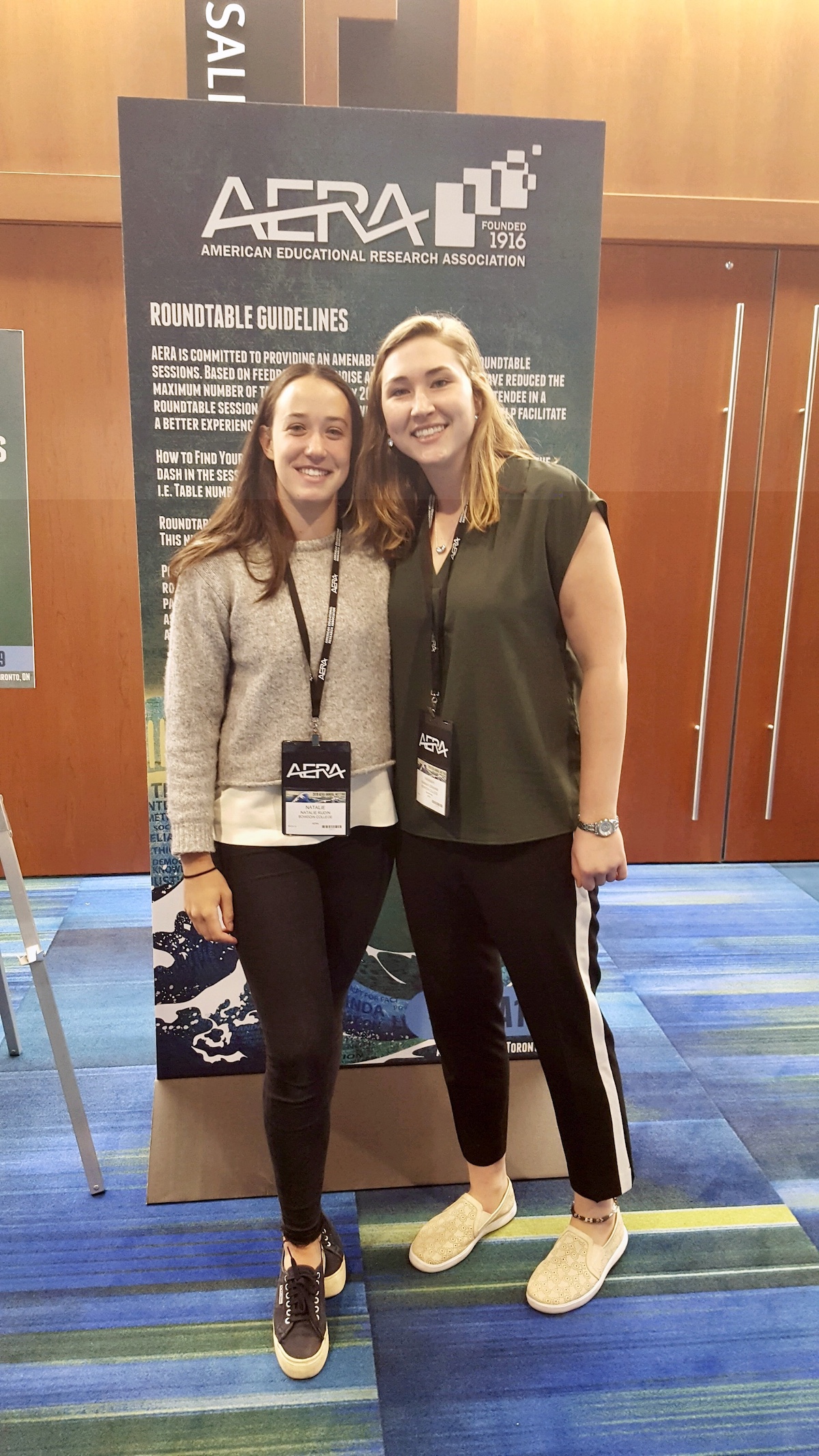Seniors' Sociology Research Examines a Subject Close to Home: Bowdoin
By Rebecca Goldfine
Their advisor, Ingrid Nelson, an associate professor of sociology at Bowdoin, said it is rare for undergraduates to be invited to share research at the American Educational Research Association (AERA) conference, the main professional body for education research in North America.
"Deconstructing Elite Institutions: How students Inhabit Race Frames at Liberal Arts Colleges"
The work of Hannah Graham and Natalie Rudin builds upon a trove of data collected last year by students in Ingrid Nelson's class looking at diversity in higher education. Students in the course interviewed fifty-seven of their Bowdoin peers (approximately half were white and half were students of color) to find out how race and class had impacted their college experiences.
Starting last summer and continuing through the year, Graham and Rudin pored over the transcripts. And a few surprising themes began to emerge.
"We found that students engage in color-blind language to talk about race on campus," Rudin said, explaining that color-blind language is when people fail to acknowledge structural, historical, or power dynamics that reinforce inequality.
They also noted that when students tended to discuss race, they often followed scripts that sounded similar to one another.
One of the scripts the two seniors identified they dubbed "naturalization of segregation." This occurs when students acknowledge that people tend to self-segregate, but explain it away as "the result of a natural instinct."
Nelson said this attitude is interesting because it highlights a contradiction: while students are getting the message that it's important to learn from different kinds of people, they also believe there's something natural about racial segregation. "So most students end up with racially segregated friend groups and then feel dissatisfied with diversity at Bowdoin," she said.
While Graham and Rudin say they understand the desire to socialize with peers who share similarities and backgrounds, they argue that treating segregation as natural can lead people to passive acceptance, and a "failure to recognize structural forces causing behaviors."
One of these unrecognized forces pushing people into groups divided along racial and class lines are extracurricular activities, Graham and Rudin argue. College students often pursue activities they participated in as children, such as sports or music, both of which can be expensive.
"Pre-college investments really carry over onto campus, and that impacts how class and race play out in creating social groups," Rudin said. "So instead of finding that students are divided because some participate in extracurriculars and other don't, students were like, 'Oh, it's natural,' which is a failure to recognize systems at play."
Another trend Graham and Rudin observed was a divide between college students who are active in discussions about race—in class, in clubs, or with their friends—and students who choose to "opt out." Part of these students' avoidance, Graham and Rudin posited, stems from a fear that openly talking about the subject could jeopardize social cohesion in a small college community.
The two seniors argue that institutions like Bowdoin should encourage more of its students to engage in discussions about race and class.
"We think more engagement from campus as a whole would be beneficial for the greater good of our campus, and if students had the tools to learn about topics, the discussion could be more in depth and people wouldn't be as scared to have the conversation," Graham said.
Last summer, Graham and Rudin received financial support from Bowdoin's Craig A. McEwen Student Research Fellowship in the Social Sciences to start their research, and the Grua/O'Connell Award to support their travel expenses to the AERA conference.